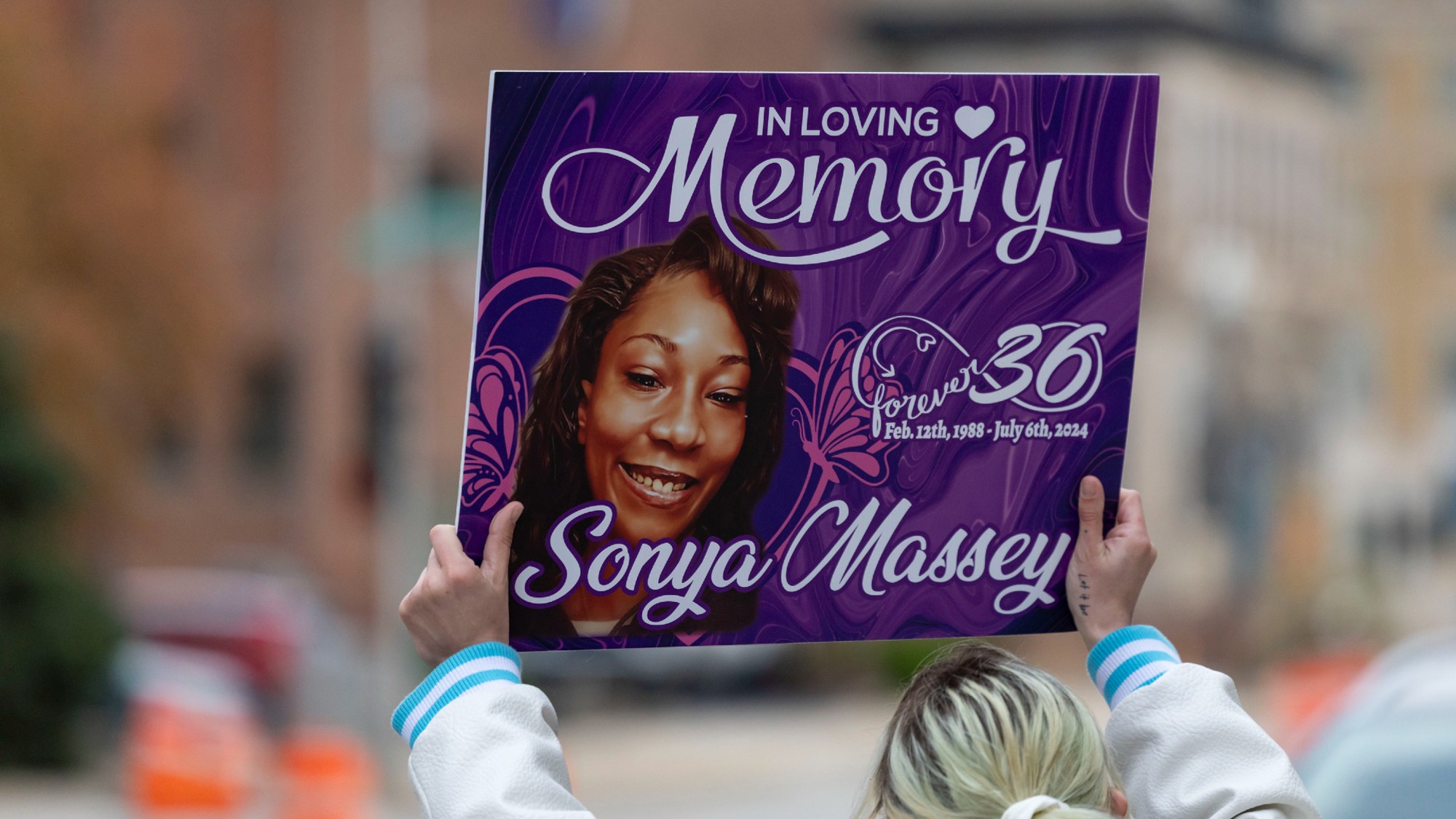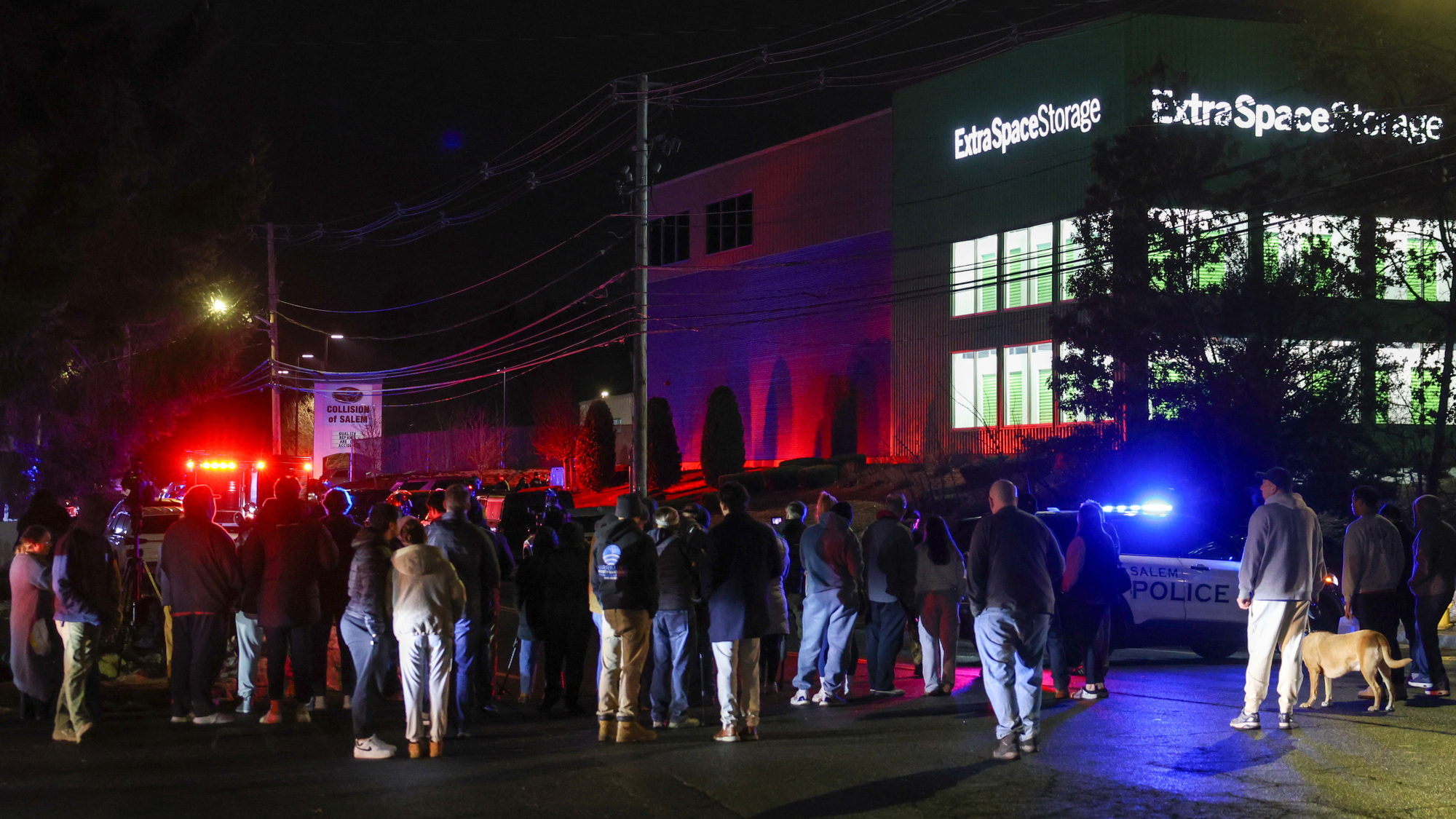YouTube bans QAnon and other conspiracy content 'used to justify real-world violence'


A free daily email with the biggest news stories of the day – and the best features from TheWeek.com
You are now subscribed
Your newsletter sign-up was successful
YouTube is cracking down on QAnon and other conspiracy theory content spreading wildly on its site.
Following the lead of Facebook, YouTube on Thursday announced its biggest step yet against "conspiracy theory content used to justify real-world violence." This includes "content that threatens or harasses someone by suggesting they are complicit in one of these harmful conspiracies, such as QAnon and Pizzagate conspiracy theories," YouTube explicitly said.
The far-right QAnon and Pizzagate conspiracies purport Democrats and Hollywood elites are part of a cannibalistic, pedophilic cabal and that President Trump is leading a resistance against them. The conspiracies have both flourished under Trump, who hasn't exactly shut them down.
The Week
Escape your echo chamber. Get the facts behind the news, plus analysis from multiple perspectives.

Sign up for The Week's Free Newsletters
From our morning news briefing to a weekly Good News Newsletter, get the best of The Week delivered directly to your inbox.
From our morning news briefing to a weekly Good News Newsletter, get the best of The Week delivered directly to your inbox.
Before Thursday, YouTube said it had "removed tens of thousands of QAnon-videos and terminated hundreds of channels under our existing policies." It also modified its recommendation algorithm, leading "the number of views that come from non-subscribed recommendations to prominent Q-related channels [to drop] by over 80 percent since January 2019." But "there's even more we can do to address certain conspiracy theories," YouTube said, leading to Thursday's enhanced policy and a promise to "ramp up" conspiracy theory moderation "in the weeks to come."
Facebook and Twitter have also removed thousands of pieces of QAnon-related content, and Facebook took a bigger step earlier this month to ban QAnon accounts, groups, and pages altogether.
A free daily email with the biggest news stories of the day – and the best features from TheWeek.com
Kathryn is a graduate of Syracuse University, with degrees in magazine journalism and information technology, along with hours to earn another degree after working at SU's independent paper The Daily Orange. She's currently recovering from a horse addiction while living in New York City, and likes to share her extremely dry sense of humor on Twitter.
-
 The year’s ‘it’ vegetable is a versatile, economical wonder
The year’s ‘it’ vegetable is a versatile, economical wonderthe week recommends How to think about thinking about cabbage
-
 Moltbook: The AI-only social network
Moltbook: The AI-only social networkFeature Bots interact on Moltbook like humans use Reddit
-
 Judge orders Washington slavery exhibit restored
Judge orders Washington slavery exhibit restoredSpeed Read The Trump administration took down displays about slavery at the President’s House Site in Philadelphia
-
 Maxwell pleads 5th, offers Epstein answers for pardon
Maxwell pleads 5th, offers Epstein answers for pardonSpeed Read She offered to talk only if she first received a pardon from President Donald Trump
-
 Hong Kong jails democracy advocate Jimmy Lai
Hong Kong jails democracy advocate Jimmy LaiSpeed Read The former media tycoon was sentenced to 20 years in prison
-
 Ex-Illinois deputy gets 20 years for Massey murder
Ex-Illinois deputy gets 20 years for Massey murderSpeed Read Sean Grayson was sentenced for the 2024 killing of Sonya Massey
-
 Sole suspect in Brown, MIT shootings found dead
Sole suspect in Brown, MIT shootings found deadSpeed Read The mass shooting suspect, a former Brown grad student, died of self-inflicted gunshot wounds
-
 France makes first arrests in Louvre jewels heist
France makes first arrests in Louvre jewels heistSpeed Read Two suspects were arrested in connection with the daytime theft of royal jewels from the museum
-
 Trump pardons crypto titan who enriched family
Trump pardons crypto titan who enriched familySpeed Read Binance founder Changpeng Zhao pleaded guilty in 2023 to enabling money laundering while CEO of the cryptocurrency exchange
-
 Thieves nab French crown jewels from Louvre
Thieves nab French crown jewels from LouvreSpeed Read A gang of thieves stole 19th century royal jewels from the Paris museum’s Galerie d’Apollon
-
 Arsonist who attacked Shapiro gets 25-50 years
Arsonist who attacked Shapiro gets 25-50 yearsSpeed Read Cody Balmer broke into the Pennsylvania governor’s mansion and tried to burn it down
